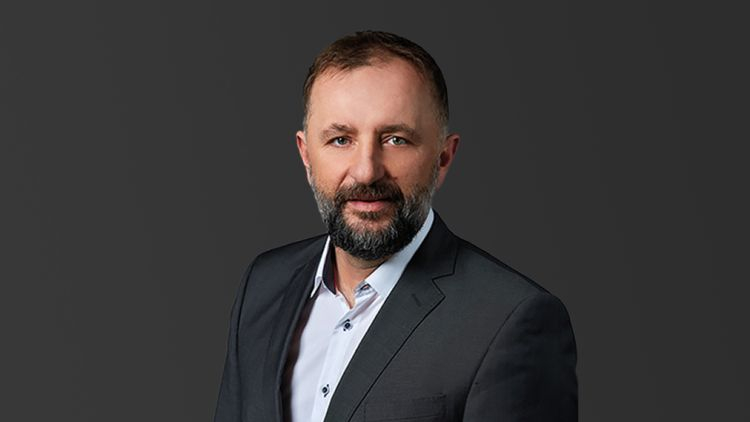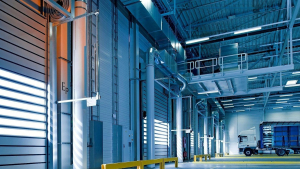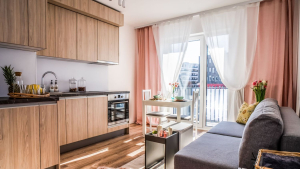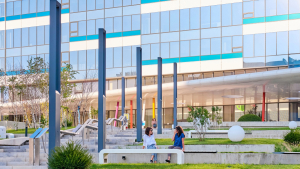
The attitude of young Poles towards the concept of property is changing. Property Forum talked to Andrzej Gutowski, Vice President and Sales Director of Ronson Development, another Polish large residential developer, which has recently decided to include PRS apartments in its offer.
Ronson has just announced that is going to join the competition on the new but rapidly developing PRS market in Poland. Could you please explain the reasons for such a decision?
Ronson Development has been operating in the real estate industry for over 20 years. These 20 years succeeded in 32 completed projects and over 10,000 apartments built. During this period, we have created not only a high-quality portfolio but also a powerful experience. We know the market very well and understand the trends that govern it. Due to a number of factors, the role of the Private Rented Sector is rapidly increasing, and we, as a strong player in the real estate market, have the opportunity to expand our business to this segment. We will run it in parallel, without prejudice to our key activity, which is the sale of apartments on the primary market.
The development of the PRS segment is driven by economic factors, in particular, the limited possibilities of obtaining financing for the purchase of own apartment. But also demographic factors, related to greater mobility and financial independence, are appreciated especially by the younger generation. It is no less important than in the PRS segment, a good-quality product is created, with a guarantee of comfortable, safe and high-quality housing.
People in Poland are still very attached to the ownership of the apartments. Why do you think it will change?
The attitude of young Poles towards the concept of property is changing. Their model of life and work, greater mobility, commitment to flexibility and a greater balance between private and professional life mean that, unlike their parents, they do not want to be bound by loans and limit them. This is something completely new in Poland. Western Europe, especially our neighbour – Germany, has been practising this model for years.
To which group of tenants you are going to address your offer?
The group of people who rent apartments is growing, and we as a stable and financially strong development company, want to be the subject of the first choice for them. We prepare an offer for a wide audience. Professionals, managers, who are profesionally mobile, but also students and families. As always, we pay a lot of attention to the design phase. Our investments in the PRS segment will be distinguished by quality and functionality.
In your opinion, how will the demand for residential property in Poland look like in 2022?
The demand for apartments is not decreasing, and Poles still treat the property as a safe capital investment. However, both buyers and developers face the challenges posed by the market. Inflation, higher interest rates, and thus more expensive loans, mean that many customers postpone the decision to buy a flat. These are especially people who buy their first apartment. More and more often, they simply cannot afford these flats. In turn, we, as developers, face a very limited supply of land, especially in large cities such as Warsaw and Wrocław. Of course, Ronson has a secured land bank. In 2021 alone, we expanded it by 8 locations, where over 3000 units will be built. So we are confident about the next years of our activity.
Do you think that rising interest rates may cool the market down?
Rising interest rates are certainly influencing the market. For now, they are at the acceptable level for the market and do not slow it down. However, we expect a slight cooling. Whether it will be fragile or not, depends on further possible increases.
Slow procedures, rising construction costs or the lack of plots for new developments – what are currently the biggest business obstacles for the residential developers in Poland?
Certainly, each of the above-mentioned factors affects the work of developers. However, the main problem is the limited supply of land, especially in the largest cities. Difficult cooperation with local governments and the lack of masterplan does not help in this respect. There are many lands that do not have such documentation. The second issue is the cooperation at the level of developing the area. Developers would be willing to participate in this process, but they do not find a partner on the side of local governments.
Can you tell us a little bit about Ronson`s other investment plans for 2022?
In the first half of 2022, we will start several new projects. These will be Osiedle Vola in Warsaw’s Wola district and Osiedle Zielono Mi in Dolny Mokotów. A complete novelty in our offer will be an estate of single-family houses in Falenty near Warsaw. We will also launch a new project at Smardzewska street in Poznań and at Sobola street in Szczecin. The common feature of these investments are green recreational areas designed by us and the applied ecological solutions. Greenery plays a very important role in our projects. We know that our residents expect to live in a comfortable and healthy place. In Falenty, we will provide residents with a two-hectare recreation area, an internal garden at Smardzewska, and a bay of attractions for residents at Sobola. Ecological solutions that we reach for – photovoltaic panels to illuminate the common area, LED bulbs, reuse of rainwater for watering gardens – on the one hand, are an obvious tribute to environmental protection, on the other – mean real savings and lower bills in the era of growing maintenance costs.



